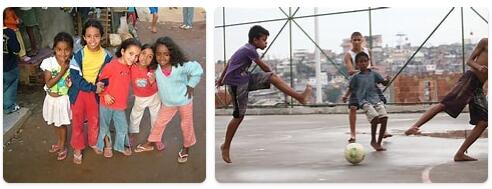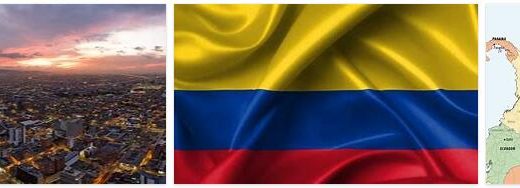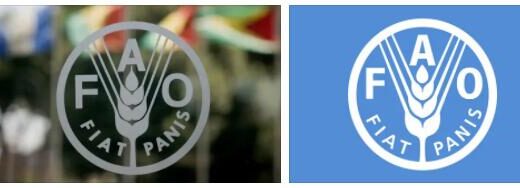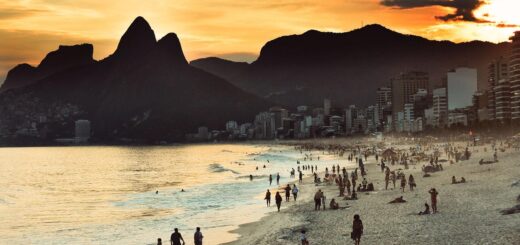Brazil 2014
Yearbook 2014
Brazil. The year was largely marked by two events: the presidential election and the World Cup. The second round was won on October 29 by incumbent President Dilma Rousseff of the Labor Party (PT) with 52% of the votes cast, against Aécio Neves of the Brazilian Social Democratic Party (PSDB).
The electoral movement became unusually fierce with very harsh words between the candidates. Social issues dominated, where PT’s successful poverty reduction program was accused of being too costly and also PT’s ability to create growth was questioned by the opposition. The business community demanded a better investment climate and, along with the majority of leadership writers in the media, stood behind Neves as presidential candidate, but the electorate as a whole gave Rousseff and PT the final victory.
In the midst of the election campaign, August 13, Eduardo Campos, candidate for the Socialist Party (PSB), also died in an airplane crash near Santos in the state of São Paulo. He had been in third place in the opinion polls so far. The other presidential candidates temporarily suspended their election campaigns. Campo’s vice presidential candidate Marina Silva took over the party’s candidacy, but did not go to the second round. In the October 5 congressional coalition, the government coalition received 55% of the vote, and in the governor elections held at the same time, the opposition candidates in the major states of Rio de Janeiro and São Paulo won, while PT won in Bahia and Minas Gerais. In general, voter support for PT was greatest in the poorer states of the Northeast and for the opposition in the richer, industrialized states of the South.

Brazil population in 2020 is estimated at 212,559,428. President Rousseff was annoyed throughout the year by the so-called Operation Car Wash (Lava Jato), a preliminary investigation into corruption and money laundering against financier Alberto Youssef, who also appointed a former head of the state oil company Petrobras as involved, and thus Rousseff himself. PT’s management promised to clear all Petrobras who were involved in the corruption business. The fiftieth anniversary of March 31 of the 1964 military coup also cast its shadow over the election campaign. An already controversial congressman, Dilson Bolsonaro, in the middle of the commemoration ceremony over the victims of the military dictatorship, unfurled a banner that paid tribute to the coup and thanked the military for not becoming a Cuba – a clear political glimmer against the left’s Rousseff. In the chaos that followed, the congressional session was temporarily postponed.
The recent protests against the costs of organizing the World Cup have created some concern for the spirited atmosphere when the championship started in June, as did the delayed construction of several arenas. Some demonstrations took place in the capital, Brasília, among others, but the championships went well organically. In terms of sport, things got worse: the national team, which had soaring expectations at home, was knocked out on July 8 in the semi-final against Germany with the embarrassing numbers 1–7.
In the middle of the carnival in March, the cleaning workers in Rio went on strike. After eight days of growing garbage on the streets during the most intense days of the tourist season, the City Council agreed to their demand for a 40% increase in wages. In the following months, bus drivers in both Rio and São Paulo also went on strike, creating considerable nervousness among authorities and organizers ahead of the large international crowd storming expected during the World Cup.
The 2018 fascists are regaining power – backed by the bourgeoisie, O’Globo and Washington
According to topb2bwebsites, the Brazilian bourgeoisie with the money of the landlords and industrial magnates and the media monopoly O’Globo’s total control over the media in October got their man elected president: the relatively unknown major Jair Bolsonaro. By then they had removed his biggest challenger, Lula. Bolsonaro won the first round of the presidential election with 46% of the vote against 29.3% for PT’s Fernando Haddad. In the second round of elections 3 weeks later, Bolsonaro got 55.1% of the vote against 44.9% for Haddad. The unknown fascist major had triumphed over Sao Paulo’s popular mayor. O’Globo had carried out massive lying campaigns targeting Haddad, while Bolsonaro had unfolded his fascist vision for Brazil. He paid tribute to the military dictatorship of the 1960’s and 1970’s, declared that the left could leave the country or be buried, stated that he would eradicate the country’s homosexuals, that Brazil would withdraw from the COP15 climate agreement and that landlords would be given free rein to clear Amazon’s remaining rainforest and reserves for the indigenous population. A few days after his election victory, a tab was lifted for the plot, as the same judge who had been running cases against Lula da Silva for several years was named “Minister of Justice”. Then the sting was directed at the Cuban doctors in the country. Over 8,000 Cuban doctors had worked for several years in the poor remote areas of the country, where there were few or no Brazilian doctors. Bolsonaro now demanded that they prove their medical education and in the future should have paid 100% of their salary, contrary to the existing system, where doctors were immediately paid 25% and the remaining 75% on their return to Cuba. Cuba did not bow, and after a week, chartered flights were underway to transport Cuban doctors back to Cuba. The WHO turned on the alarm bells for invisible medical shortages in the country. Washington regime and right-wing forces in Europe clapped hands, while Bolsonaro vowed to remove restrictions on firearms access and pledged not to host the COP25 climate summit in 2019. Washington planned to use the right-wing radical regimes in Colombia and Brazil for a military attack on Venezuela. 25 years of North American retreat in Latin America were to be reversed.
Bolsonaro announced in early December that he had appointed Ricardo Salles as new Minister of the Environment. Salles doesn’t know anything about the environment, is a lawyer, but has a past as “environment minister” in the state of Sao Paulo. Greenpeace in Brazil commented on the appointment of Salles as follows: «He has not been nominated for his environmental protection credentials. He has been appointed because he follows Bolsonaro’s agenda ». The agenda is that global climate change is not a primary problem and that fines in Brazil for environmental destruction are ideologically conditional. He is the husband of mining companies, landlords and carpenters, and will work to remove the restrictions on mining, cattle farming and forestry in the Amazon. Brazilian environmental organizations fear the development and the rest of the world should do the same.
New Minister of Justice became Sérgio Moro. The same judge who had sentenced former President Ignacio Lula da Silva to prison in 2017.


